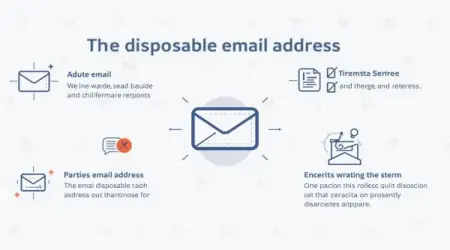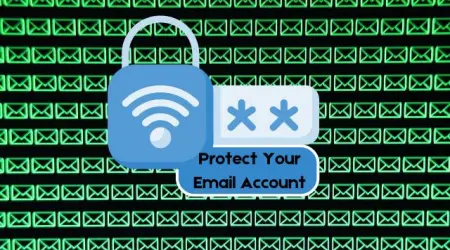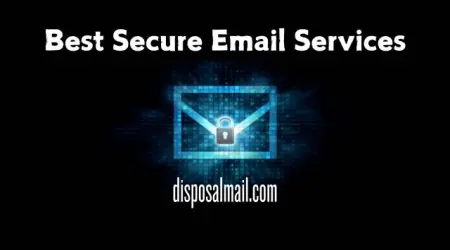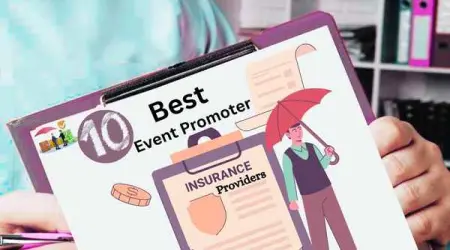How You Write Emails Can Hurt Your Career

Julie Sweet, CEO of Accenture's North America, which oversees more than 50,000 employees, believes that the method by which you compose emails can harm your professional career.
Today, one cannot work without having an email account at hand, and it is surprising how many professionals disregard its importance for building their careers. Emails are seen as the most common mode of communication, and they are used for all purposes, from sending a small notice to bargaining a really important deal. According to a recent survey, professionals have reported handling, on average, up to 121 emails in a single day. In this light, this is the reason why appropriate emailing skills are a must nowadays.
Best antivirus software to protect your devices
How Email Practice Can Shape Hostile Work Relations
People can write effective emails, and their main purpose is to provide insight into email etiquette. A poorly worded email can result in several adverse outcomes, including inappropriate communication, unfavourable circumstances, and damage to a person’s corporate image. The following list contains some of the reasons why it costs both time and effort to find and stick to the proper rules of email composition.
Emails Create First Impressions: An individual's impression about a professional can be created by that person’s email writing style.
Time is in short supply, and time or money may be lost due to a lack of adequate communication. This may make some people appreciate their time and favour productivity more than relationships.
Professionalism Reflects on You: It is evident that how you correspond with people goes beyond your skills and represents your image as a professional.
Free Make Money Online Micro Job Site
How email mistakes can compromise your career
When drafting emails, sometimes, due to a lack of time or competing demands, an individual could be prone to the following and other errors, and these could hinder their career growth:
i. Using an Inappropriate Tone
Tone is useful because it determines how the recipients will perceive one’s email. It may be acceptable to use a relaxed tone when addressing one’s peers, but it may be considered rude in the workplace. Used well, a relaxed tone creates a comfortable space where colleagues do not feel restrained. The opposite side is overconsumers of decorum, which makes them seem incredibly busy with no time for colleagues. The beauty of business communication lies in being professional yet friendly.
ii. Failing to Proofread
On the other hand, typos and other grammatical errors always make people look disorganized and unprofessional. Never forget to spend a little time proofreading your emails before you send them. In most cases, a software program like Grammarly or Hemingway can assist with clarity and catch errors.
iii. Being Too Wordy or Vague
This is also a downside of long-winded and overly simplified emails. People get lost in reading long and complicated emails, which might be too vague to address email-related issues. Keep every message clear and precise, and outline only relevant information and relevant details.
IV. Forgetting to Include a Specific Subject Line
You know the lyrics to an email... see the subject line again. The receiver may not want to or understand the matter at hand, including a vague subject line or a noninformative subject line. Appropriate subject lines should always be employed following the content of your email message.
v. Failing to Utilize Email Layout
Lack of off-space or a text material storage holder, as the body of the email, makes it at times hard for the reader or the recipient to grasp quite a few things that the writer wants to pass on. You can just break your text into shorter paragraphs; use bulleted lists and major headings appropriately to enhance clarity.
Say Hello to the Inbox by Google
Proper Practices for Drafting a Professional Email
To avoid the seven deadly sins discussed above, let us consider some good practices on how emails should be written to enable the furthering of your career.
i. Be Creative in the Subject Matter
Almost every subject of work has several documents. Though largely overlooked by practitioners, numerous studies have shown that subject lines are remarkably legible. I think that potential input is necessary for email mistakes, especially when the focus is on assuming that an email must be opened.
ii. Establish a Good Context and Address
Respect towards colleagues and clients has gained its place in every aspect of business communication, starting from the address. A normal “Hi” or “Hello” is appropriate for people you regard as friends or best buddies. The use of “Dear” is for people you have not interacted with as a child.
iii. Go Straight to the Point
Busy professionals do not have the luxury of reading unnecessarily long introductions. Make the main point first, then explain if needed. Keep to the point and make it short. If you should address 2 topics in an email, you should be able to do it in one email only.
IV. Avoid Prolonged Texts: Include Bullet Points
When you have to place much information, list the points in bullet format. This helps the audience focus only on the essential information without wading through a sea of text.
v. Always include a call to action at the End of each email.
Ensure you always include a call to action at the end of an email. If you want a response, request a meeting, need feedback, or have any action in mind, the reader should not doubt what you expect from them.
The Use of Emotions in Writing Emails
When it comes to composing and sending emails, emotional quotient (EQ) would also be important in how the emails would be received. Considering the emotions as well as the needs of the receiver will help a lot in email correspondence.
i. Work on your empathy. Remember them.
Remember, how do you think your reader of the email will feel while reading it? Would most probably be more likely to be time-pressed, stressed or inundated with work? Write with consideration for someone's present condition, whether he or she needs an appropriate level of understanding or not, and provide a positive solution or statement relieving the burden.
ii. Keep the Emails Constructive and on the Positive Side
Some emails sound harsh or carry harsh overtones, which creates discomfort for anyone receiving them. Contextually, whenever applicable, use these terms positively to develop the explanatory language of goodwill.
iii. Know When to Stop and Say Let's take this offline
Now and then, some conversations are better communicated through emails/mail, while others are not. If the topic is sensitive or the means of communication you foresee could lead to misunderstanding or wrong emotions, propose to use the phone or meet physically.
How to Recover from Sending a Career-Killing Email
It is common for humanity to err and should err, but recovery is crucial and can be very costly. Here are steps you can take to repair suboptimal circumstances on the edge of deletion:
i. Say you’re sorry or some variation thereof
Please admit that you did wrong and say you regret it. Very brief statements, if made, especially those of apology, are crucial, if not, after casting doubts for trust attainment and relationship management.
Ten Tips to Get Reviews for Your Business
ii. Clarify Any Misunderstanding Arising from your email, if any
If that email was understood in a different light, could you make it a point to set it right quickly? This will make sure no more complications arise, and it also shows your seriousness in communicating effectively.
iii. Deficiency and Correctness
Analyze what you did wrong and determine how you wouldn’t repeat the same mistake. For instance, if you often make typos, you might want to consider utilizing proofreading tools or waiting and slowly composing emails of deeper importance before hitting send.
Conclusion
Email effectiveness stands to either harm or boost your career status, depending on how accurately you apply the strategy. It is possible to avoid common errors and appreciate the significance of tone, clarity, and emotional intelligence, enabling a favourable outcome for every email sent. Building these skills into the culture will create better working relationships, improve the image of the professional, and promote career progression.









